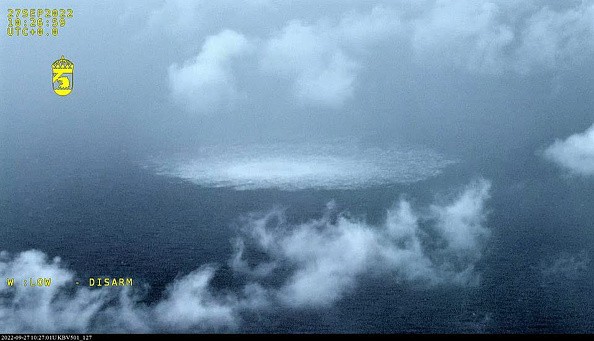While experts still quantify the amount of leak from the Nord Stream pipelines, they said it could threaten the environment.
The leaks from the Nord Stream have become a global concern because of the threat to Europe's environment and energy systems.
The alarming explosion of the Nord Stream leak produced harmful methane, prompting investigations about the magnitude of the leak.
The two Nord stream pipelines were not operational.
Furthermore, scientists and experts explained that the methane from the leak poses an environmental issue since it is a harmful greenhouse gas.
According to the Reuters report on October 1, Russia requested a council meeting to address issues on leaks from Nord Stream 1 and 2 pipelines.
The same report showed that Gazprom spokesperson Sergei Kupriyanov said at the meeting that 800 million cubic meters of natural gas leaked.
The United Nations Environment Programme (UNEP) emphasized that methane is a powerful greenhouse gas that harms and pollutes the environment, making the Nord Stream's methane the biggest leak recorded.
Methane leak

On the other hand, the Guardian published a joint report of Denmark and Sweden told the United Nations (UN).
The same report noted that scientists estimated 100,000 and 350,000 tonnes of methane leak from the Nord Stream pipelines.
The Guardian article said that countries, including Denmark, Sweden, and Poland, believed that the North Stream pipelines leak in the Baltic Sea was caused deliberately, and investigations are ongoing if how explosives reached the pipelines.
On the other hand, Finland, Norway, and Sweden observed sharp methane increases.
Meanwhile, Russia denied its involvement in the Nord Stream gas leak.
In an interview with Reuters, Manfredi Caltagirone said that the leak from the Nord Stream pipelines result could be the largest emission detected.
Caltagirone is the head of UNEP's International Methane Emissions Observatory (IMEO for UNEP).
Why methane is harmful
The UN report also added that methane is recorded to contribute 30 percent of global warming.
It said that the methane emissions caused by humans are from gas processing companies, fossil fuels, landfills and waste, and livestock agriculture.
Moreover, the Environment Programmed also noted that methane contributed the following:
- Over 260,000 premature deaths
- 775,00 asthma-related hospitalization
- 25 million tonnes were recorded in crop losses
On the other hand, the Climate Clean Air Coalition said that methane, unlike carbon dioxide (CO2), is an environmental pollutant that remains in the atmosphere for about 12 years.
Methane is harmful and warms the environment worst than carbon dioxide.
It explained that methane is seen to affect the climate and has indirect health risks to humans and animals.
Reducing methane emissions is important to slow down the worsening effects of climate change. Immediate mitigation to cut back the methane amount can prevent potential environmental risks.
In the Global Assessments to reduce methane, the United Nations Environment Programme explained that human-caused methane reduction by 45% could prevent risks of global warming.
The report urged immediate action as human-caused methane emissions are seen increasing.
Related Article: Rising Ozone Pollution is a Silent Threat to Pollination and Plants' Health [Research]
For more similar stories, don't forget to follow Nature World News.
© 2025 NatureWorldNews.com All rights reserved. Do not reproduce without permission.





